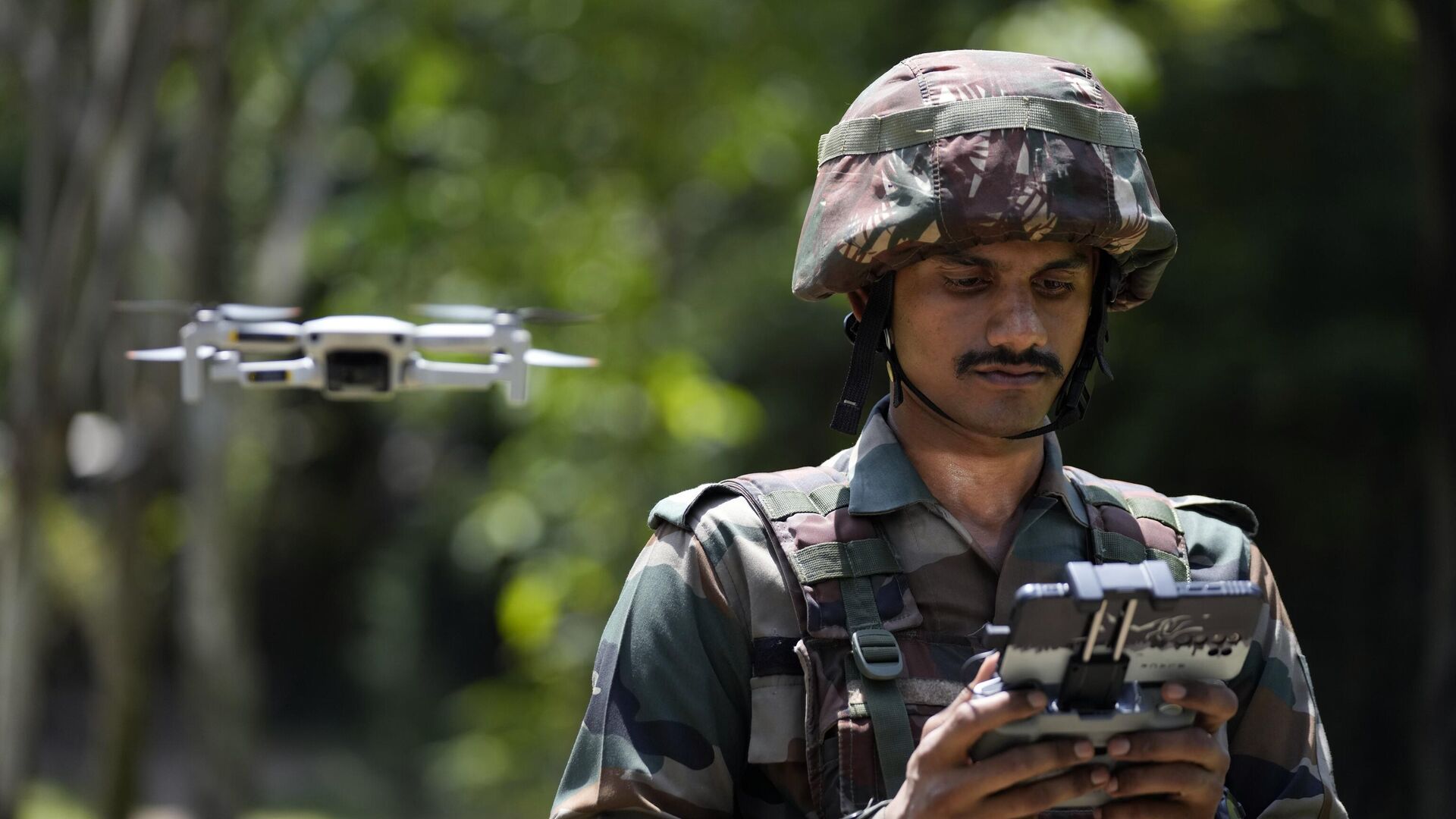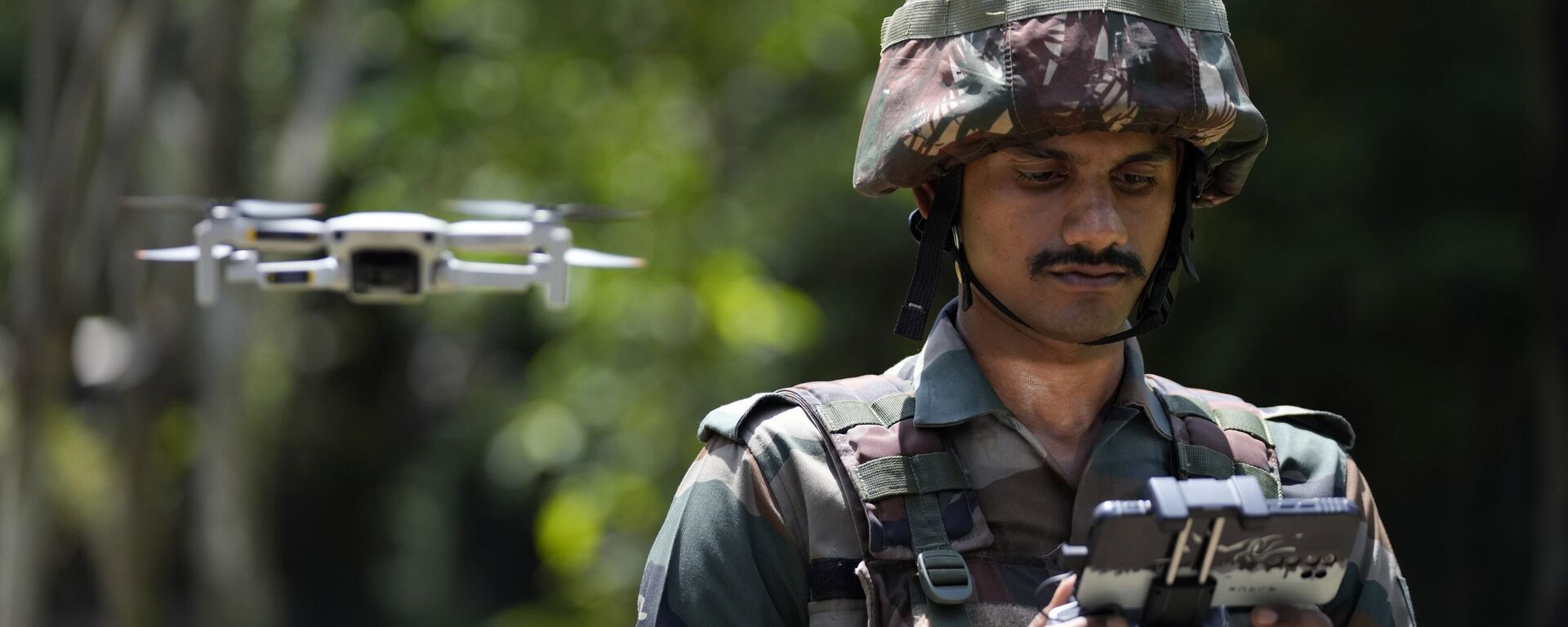https://sputniknews.in/20240216/iit-develops-sound-based-anti-drone-system-6565772.html
IIT Develops 'Sound-Based' Anti-Drone System
IIT Develops 'Sound-Based' Anti-Drone System
Sputnik India
The maker of the sound-based drone system has called the technology the first of its kind. Unlike traditional technology, this system identifies drones by analysing the unique sound signatures they emit, allowing for swift and accurate detection.
2024-02-16T14:10+0530
2024-02-16T14:10+0530
2024-02-16T14:10+0530
science & tech
science & tech
jammu
india
drone
reconnaissance drone
drone attack
kamikaze drones
arms sales
arms control
https://cdn1.img.sputniknews.in/img/07e8/01/08/6126676_0:160:3072:1888_1920x0_80_0_0_810c04ac67ec81b39d7b1a9646dfb571.jpg
The Indian Institute of Technology-Jammu (IIT-Jammu) has developed a drone to detect the passing of birds and drones across international borders, Indian media reported.However, in mass production, the cost of making the drone ranges from INR 25,000 to 40,000. The professor also said that the technology is cost-effective and easy to operate, and that it will also help the government deal with issues such as arms, ammunition, and drugs sent across international borders.It will take between six months and one year for the institute to develop the technology, Dr Nathwani said, adding that if security forces need fool-proof anti-drone grid technology, they would require data.
https://sputniknews.in/20240210/indian-army-secures-patent-for-hexacopter-drone-for-high-altitude-surveillance-6511279.html
jammu
india
Sputnik India
feedback.hindi@sputniknews.com
+74956456601
MIA „Rossiya Segodnya“
2024
Deexa Khanduri
https://cdn1.img.sputniknews.in/img/07e6/0c/13/138923_52:0:533:481_100x100_80_0_0_cadf23d341691fc65ff2b22fd1afe584.jpg
Deexa Khanduri
https://cdn1.img.sputniknews.in/img/07e6/0c/13/138923_52:0:533:481_100x100_80_0_0_cadf23d341691fc65ff2b22fd1afe584.jpg
News
en_IN
Sputnik India
feedback.hindi@sputniknews.com
+74956456601
MIA „Rossiya Segodnya“
Sputnik India
feedback.hindi@sputniknews.com
+74956456601
MIA „Rossiya Segodnya“
Deexa Khanduri
https://cdn1.img.sputniknews.in/img/07e6/0c/13/138923_52:0:533:481_100x100_80_0_0_cadf23d341691fc65ff2b22fd1afe584.jpg
indian institute of technology-jammu, iit-jammu, international borders, sound-based detection, dr karan nathwani, electrical engineering department of iit jammu, anti drone system, drone system,
indian institute of technology-jammu, iit-jammu, international borders, sound-based detection, dr karan nathwani, electrical engineering department of iit jammu, anti drone system, drone system,
IIT Develops 'Sound-Based' Anti-Drone System
Deexa Khanduri
Sputnik correspondent
The maker of the sound-based drone system has called the technology the first of its kind. Unlike traditional technology, this system identifies drones by analysing the unique sound signatures they emit, allowing for swift and accurate detection.
The Indian Institute of Technology-Jammu (IIT-Jammu) has developed a drone to detect the passing of birds and drones across international borders, Indian media reported.
"It is the first of its kind, and we have developed an entirely new technology called sound-based detection. This system detects the
sound emitted by drones, producing a unique signature that helps in their identification. We compare this signature with the system's database, and if a match is found, the drone is detected. The cost of this system is about INR 400,000", Dr Karan Nathwani, a professor at the Electrical Engineering Department at IIT Jammu, told local media.
However, in mass production, the cost of making the drone
ranges from INR 25,000 to 40,000. The professor also said that the technology is
cost-effective and easy to operate, and that it will also help the government deal with issues such as arms, ammunition, and drugs sent across international borders.
It will take between six months and one year for the institute to
develop the technology, Dr Nathwani said, adding that if security forces need fool-proof anti-drone grid technology, they would require data.
"We can provide this system to the army only when they provide us with data from similar environments, allowing our AI technology to incorporate and adapt", Dr Nathwani said.



